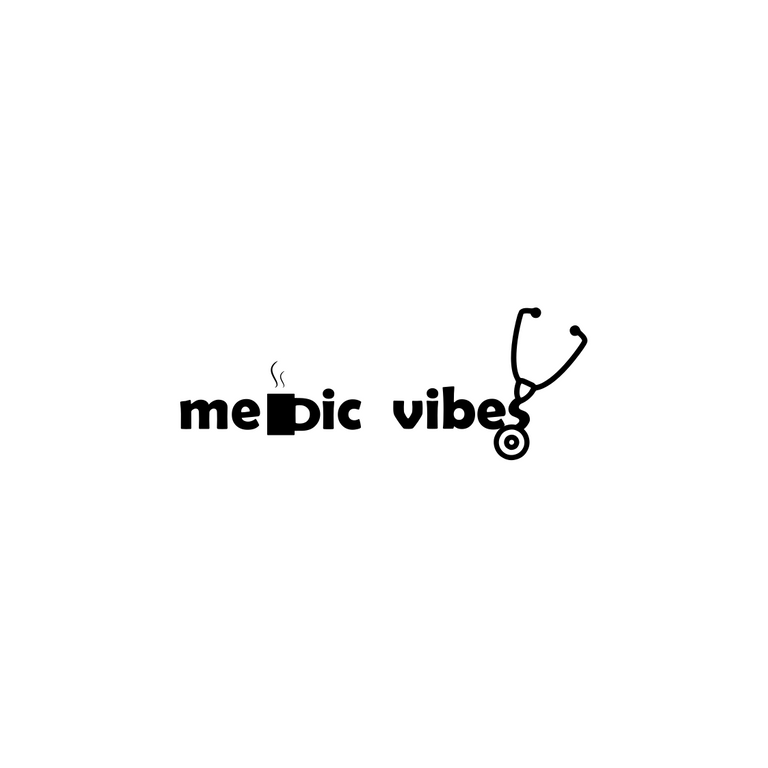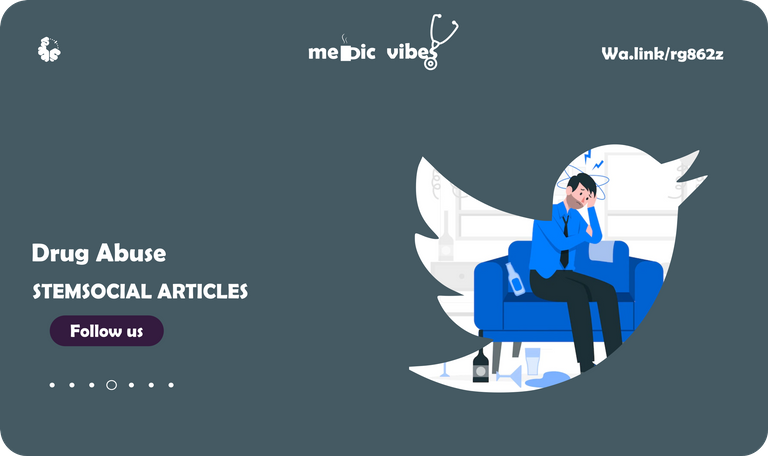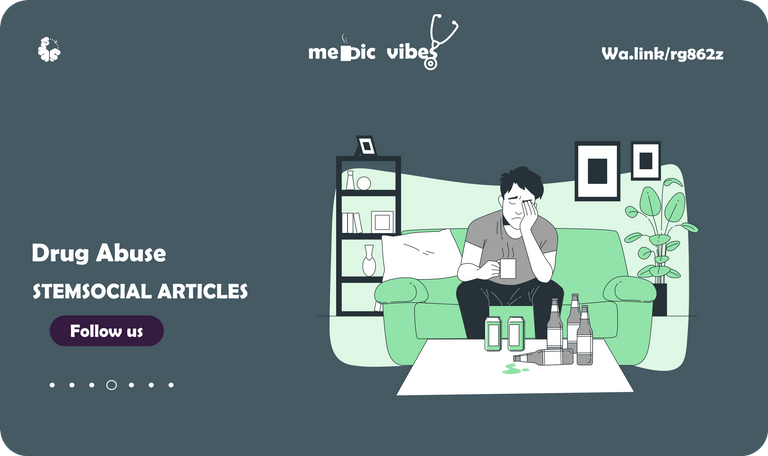In the last post, we saw how:
- Difficult to treat schizophrenia, addiction, using separate facilities and practitioners.
- Recent efforts focus on cost-effective care, including treating prisoners to reduce recidivism.
- Substance Intoxication and Withdrawal refer to the effects of drugs on behavior and the body, caused by ingestion or cessation of use. Drug abuse in Nigeria affects students, drivers and those lower on socio-economic ladder.
Welcome to Medic Vibes, where we discuss mental health disorders and make sense of them. Dr Ebingo Kigigha is a medical doctor (aspiring psychiatrist) and creative person (illustration and music). This has been our routine for four consecutive months. This month will be dedicated to substance abuse. In the first month, we discussed Depression, and in the subsequent month, anxiety. We just finished with Conduct disorders.
In this post, we are looking at A Nigerian Study on Substance Abuse. To learn more just keep scrolling down. You can also skip to the key point of the post if you which or go to the conclusion to get the summary.

In Western countries, alcoholism is a very common mental health condition. 2 million people suffer from injuries every year in the United States due to alcohol, and there are also 22,000 deaths.
Recent studies have looked carefully into alcohol dependence, its genetic predisposition, the pattern of the condition, and how to medically treat it.
Alcohol affects virtually every system of the body, particularly the brain's neurotransmitter systems. This is why alcohol abuse has been linked to several mental health conditions like depression, anxiety, and even psychotic presentations. When alcohol is continuously abused, it leads to other features such as tolerance, evidenced by withdrawal symptoms that are so intense they cause anxiety and are soon complicated by anxiety.
These are important constants that should be evaluated in the patient who is dealing with psychiatric problems associated with alcohol.
In psychiatry, one of the most common conditions seen in practice is alcoholism. The features seen in withdrawal are very common in other mental health conditions as well. The usual TV stereotypes are not the features seen in this. They are not wobbly and struggling to stand.
Prevalence of Drinking: At some time during life, 90 percent of the population in the United States drinks, with most people beginning their alcohol intake in the early to middle teens (Table 20.2-1). By the end of high school, 80 percent of students have consumed alcohol and more than 60 percent have been intoxicated. At any time, two of three men are drinkers, with a ratio of persisting alcohol intake of approximately 1.3 men to 1.0 women, and the highest prevalence of drinking from the middle or late teens to the mid-20s.
Almost 90% of people in the United States indulge in drinking at some point in their life. For most of them, it begins in the late teen years. When they reach the end of their high school life, about 80% of them would have used alcohol and 60% would have been drunk at some point.

Alcohol and Bad Memories(Reaction)

Image by storyset on Freepik
Alcohol has long been associated with more fluid social dynamics such as parties and hangouts with friends and family. Some have grown to associate alcohol with a good time, but some studies are showing that the memories people make while under the influence of alcohol are not always pleasant.
In a study conducted by the Journal of Nature Communications, researchers found that alcohol has a way of stopping memory consolidation. Specifically, the pathways disrupted are associated with the brain's transfer of short-term memories to long-term ones. This is why the memories tend to be either forgotten or not fully formed if remembered. It's not that they are "bad memories" in the sense that they were from bad experiences, but they are like broken tape recordings.
The tweet we are discussing points more to the fact that the issues that elude you prior to drinking will still be there afterwards. This is especially the case if that was the reason you were drinking in the first place.
In other studies conducted on this topic, the Journal of Addiction Biology found that alcohol can be associated with negative memories. Their study found that those who used alcohol more were more neurotic and would remember events and activities that had negative connotations such as fights and quarrels, rather than job promotions. It is possible that brain centers related to emotion were modulated by alcohol.
These are consequences that are worth considering if you indulge in heavy drinking. Besides the effects it can have on multiple organs in the body, it can also destroy memories in a way that is somewhat permanent. Some studies have also found that alcohol can have structural effects on the brain that are evident in clinical experiments. These changes were thought to be associated with the negative memories and cognitive decline associated with alcohol consumption even years after the alcohol abuse has ended.
There are many ways that those who deal with alcohol addiction can get help. The easiest of all is to reach out to your primary healthcare center.

Treatment
Alcohol has long been associated with more fluid social dynamics such as parties and hangouts with friends and family. Some have grown to associate alcohol with a good time, but some studies are showing that the memories people make while under the influence of alcohol are not always pleasant.
In a study conducted by the Journal of Nature Communications, researchers found that alcohol has a way of stopping memory consolidation. Specifically, the pathways disrupted are associated with the brain's transfer of short-term memories to long-term ones. This is why the memories tend to be either forgotten or not fully formed if remembered. It's not that they are "bad memories" in the sense that they were from bad experiences, but they are like broken tape recordings.
The tweet we are discussing points more to the fact that the issues that elude you prior to drinking will still be there afterwards. This is especially the case if that was the reason you were drinking in the first place.
In other studies conducted on this topic, the Journal of Addiction Biology found that alcohol can be associated with negative memories. Their study found that those who used alcohol more were more neurotic and would remember events and activities that had negative connotations such as fights and quarrels, rather than job promotions. It is possible that brain centers related to emotion were modulated by alcohol.
These are consequences that are worth considering if you indulge in heavy drinking. Besides the effects it can have on multiple organs in the body, it can also destroy memories in a way that is somewhat permanent. Some studies have also found that alcohol can have structural effects on the brain that are evident in clinical experiments. These changes were thought to be associated with the negative memories and cognitive decline associated with alcohol consumption even years after the alcohol abuse has ended.
There are many ways that those who deal with alcohol addiction can get help. The easiest of all is to reach out to your primary healthcare center.
Questions
- What did you learn about Substance abuse?
Conclusion
- Alcoholism is a common condition in Western countries, with 2 million injuries and 22,000 deaths in the US yearly
- The text discusses studies that have shown that alcohol can negatively impact memory consolidation and lead to negative memories.
- Patients with alcoholism treated through intervention, detoxification, and rehabilitation, addressing medical and psychological issues first.

References
- Kaplan-Sadocks-Comprehensive-Textbook-Psychiatry
- Page demarcations made with Inkscape.org
- Healthline
- NIMH
- WHO


Alcohol is a bad thing at the end but we are still using it. Even so I have hear from several doctors that if you drink beer in little amounts you can improve your heart condition. Good post
Moderation in most things is usually nothing to worry about. Red wine specifically.
Thanks for your contribution to the STEMsocial community. Feel free to join us on discord to get to know the rest of us!
Please consider delegating to the @stemsocial account (85% of the curation rewards are returned).
You may also include @stemsocial as a beneficiary of the rewards of this post to get a stronger support.